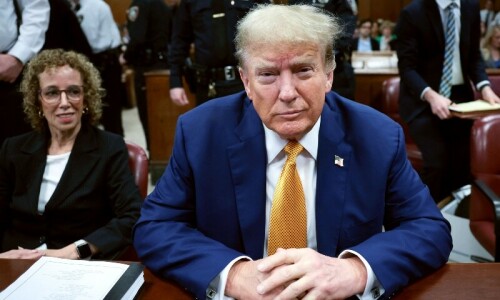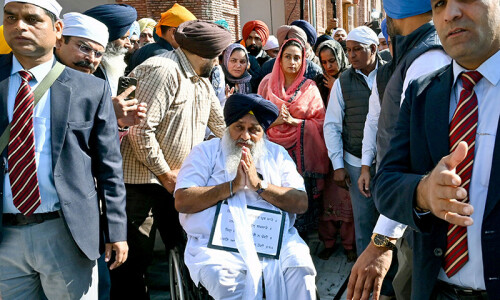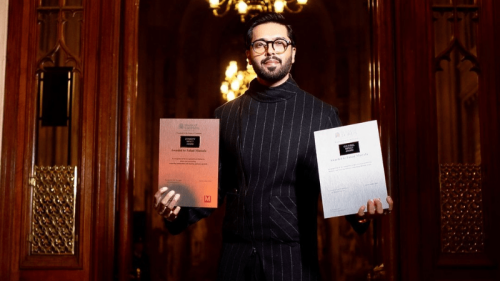ISLAMABAD, May 9: Foreign Minister Shah Mahmood Qureshi told the Senate on Friday it was time for Pakistan to follow a look-East policy while reassuring the West the new government would honour its international obligations like the ones about the war on terror without compromising national interests.
Winding up a two-day debate on the new government’s foreign policy, he promised what could amount to introducing some freshness through a consultative process while continuing with fundamental policy principles.He announced his decision to form two task forces, comprising academics, writers and retired diplomats, to advise the government about the direction of foreign policy and economic diplomacy.
The minister gave an eloquent 70-minute account of the 40-day-old coalition government’s thinking on foreign policy, ranging from the most-criticised alliance with the United States and the US-led war against terrorism to ties with neighbours like China, India, Iran and Afghanistan, and with the Muslim world.
Mr Qureshi said although the country had looked towards the West, there were many Asian economies with which Pakistan needed to be linked up.
“Time has come we have to look towards East,” he said, citing the “all-weather friend” China and regional economic forums such as the Asean on which Pakistan “must put more focus”.
The minister, who accompanied President Pervez Musharraf during a visit to China last month, said Beijing was ready to give cheap credit to help Pakistan’s development programme and its leaders had promised to encourage its major companies to increase investment in Pakistan at a time when investors from other countries hesitated to come here.
Most speakers from both the opposition and treasury benches called for a review of what many of them perceived as a pro-American foreign policy charted by a pro-American establishment and those from the religious parties called for Pakistan’s withdrawal from the US-led coalition against terrorism.
The foreign minister rejected such ideas, although he saw no harm in reviewing the country’s foreign policy. He said: “Our foreign policy must reflect its strategic interests which cannot change overnight or with a government change.”
However, he said, the government would make a greater use of parliamentary input in policy-making and even suggested ‘brain-storming sessions’ with opposition figures like Prof Khurshid Ahmed of the Jamaat-i-Islami and making use of reports submitted by Pakistan Muslim League-Q’s secretary-general Mushahid Hussain.
He said while the role of institutions like parliament, the judiciary and the Election Commission had diminished along with the Foreign Office because of concentration of powers in one man’s hands in the recent past, “the present elected government wants to see these institutions to be strong again”.
The minister assured the house the Foreign Office would not disappoint it in the future, and said: “We will assert ourselves because we do not care about (the fate of) our jobs.”
He disagreed with those who thought Pakistan followed only American diktat and cited the recent agreement on Iran-Pakistan-India natural gas pipeline by the three countries. The minister said Pakistan recognised Iran’s right to peaceful use of nuclear energy and believed that Tehran would fulfil its obligations as a member of the Intenational Atomic Energy Agency and would not support any coercive means against its nuclear programme.
He said that it was an ‘exaggeration’ to allege that Islamabad followed only foreign dictation to fight the war on terror for others and said Pakistan’s own image and interests had been harmed by militant activity.
“But the present government believes the war on terror can be won not by force alone but by winning the hearts and minds of people,” he said. “We will not do anything blindly; but we will fulfil our international obligations keeping our national interests in view.”
He said the government would not compromise with terrorists but would talk to those who wanted peace in following “a balanced approach”.
The minister said while the government did not subscribe to the concept of ‘hot pursuit’, it wanted critics to appreciate the US pledge of $750 million for the reconstruction of the area and plans to set up special economic zones.
He said Pakistan’s policy was clear that only its own troops could operate against militants inside its borders.
Referring to the PML secretary-general’s reference in his speech on Thursday to Pakistani authorities having allegedly been “bad bargainers” with the United States, Mr Qureshi said: “We will not be bad bargainers or sell out Pakistan’s interests … because we have to live here. If we go out of here, we will go back to Multan because we neither have a Canadian passport nor a flat in London.”
The foreign minister told the house his ministry had conveyed its reservations about a US decision to post at its Islamabad embassy an army general accused of maltreatment of prisoners at America’s notorious Guantanamo Bay prison in Cuba and expected Washington to respect an ally’s concerns.
However, he said, if the posting of Maj-Gen J.W. Hood were not cancelled, Pakistan had many options to block the entry of people like him.
Mr Qureshi said he planned to visit the US in July when he intended to hold a strategic dialogue with American authorities. He said Pakistan had a vital stake in restoring peace in Afghanistan and that both sides ‘must sit together for security and economic cooperation rather than engage in a blame game’.
He said he would soon visit Kabul with a message that Pakistan desired Afghan friendship and stability.
The government, he said, would pursue the peace process with India in the light of ‘ground realities’ while not being oblivious of its basic interests like water problems and the Kashmir issue.
About confidence-building measures, he said: “In all honesty, a stage has come when we have to move forward from conflict management to conflict resolution.”
Mr Qureshi rejected criticism by Mr Syed and another PML senator, S.M. Zafar, who had earlier criticised the National Assembly’s resolution calling for a UN probe into the assassination of Benazir Bhutto and said the resolution had been unanimously adopted and the government would go to the UN without any fear of any finger being pointed at the country’s nuclear programme, which he said was a deterrent and not aggressive.
In an apparent reference to the controversial US-India civilian nuclear deal, Mr Qureshi said while Pakistan was committed to nuclear non-proliferation, it would raise its voice against discrimination.
He said Pakistan could set up more nuclear plants at the Chinese-aided Chashma project for power generation to meet its energy shortages. “Chashma-II (plant) is being built and if Chashma-III and Chashma-IV is required we will not be oblivious of this (requirement).”














































Dear visitor, the comments section is undergoing an overhaul and will return soon.